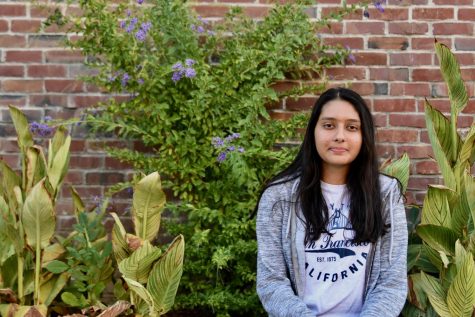World Kidney Day
Exploring the process of transplant surgery and the future of organ transplants
March 12, 2020
After observing how organ transplants had the capacity to entirely transform a patient’s life, University of California San Francisco (UCSF) transplant surgeon Lynda Frassetto decided to dedicate her life to transplant surgery.
“When [patients] get kidney transplants, they feel like new people,” Frassetto said. “Quite literally, that’s what they tell you, they feel like their old selves again. Or people who’ve been on dialysis will tell me they haven’t felt this good in 10 years. It makes people better. It is astounding how well it works when it works.”
Frassetto vividly remembers a kidney patient she had performed a transplant surgery on who told her that the surgery had “left a hole in his life” as he didn’t have to live with the constant weight of his medical condition. Before the surgery, the patient’s medical condition had consumed his day-to-day existence — so much so that having a healthy, working kidney entirely transformed his life.
“[Kidney patients] literally spend all day thinking what are they going to eat?” Frassetto said. “How much insulin should they take? When are they going to exercise? They do this every minute of every day. And even then, they still have problems with blood sugars that are too high or too low. They literally spend their entire life thinking about what they’re going to do. [It’s] such a huge part of their everyday existence.”
As a clinical doctor, Frassetto performs organ transplant surgeries and islet cell surgeries for diabetic patients. Frassetto is also one of the key players on the Artificial Kidney Project, a bioengineering project attempting to “create a small, surgically implanted and free-standing bioartificial kidney to treat end stage renal disease.” This bioartificial kidney will reduce the number of patients who need transplant surgery.
“A problem with transplant is that we don’t have enough [organs],” Frassetto said. “The number of transplants that we do every year has not changed very much over two or three decades, but the number of people on the kidney transplant list has increased dramatically. Transplant is really great if you happen to be one of the people who are lucky enough to get a transplant, but many people die before they do, ” Frassetto said. “That’s the problem, there aren’t enough organs to transplant.”
This shortage of transplant organs was why Frassetto decided to dedicate her time to the Artificial Kidney Project, which is currently entering the experimental stage. Frassetto and the rest of the team are currently waiting for Food and Drug Administration (FDA) approval to start running clinical trials to test the bioartificial kidney on patients.
Frassetto is also involved in a joint UC Berkeley and UCSF project which is trying to treat a specific eye disease by implanting a polymer with the medication into patients’ eyes. Over the course of the six month treatment period, the polymer releases the medication into the patient’s eye, rather than the patient having to put drops in their eyes six times a day. Innovative ventures like this are what make Frassetto hopeful for medicine’s future.
“Bioengineering is a relatively new field,” Frassetto said. “Bio-engineers and physicians work together to come up with clever ideas and bring them to fruition. The best part of my job is that I get to do cool stuff like that. It’s really fascinating. We’re really starting to be able to do a whole bunch of different things, even little things that can make people’s lives better.”



























